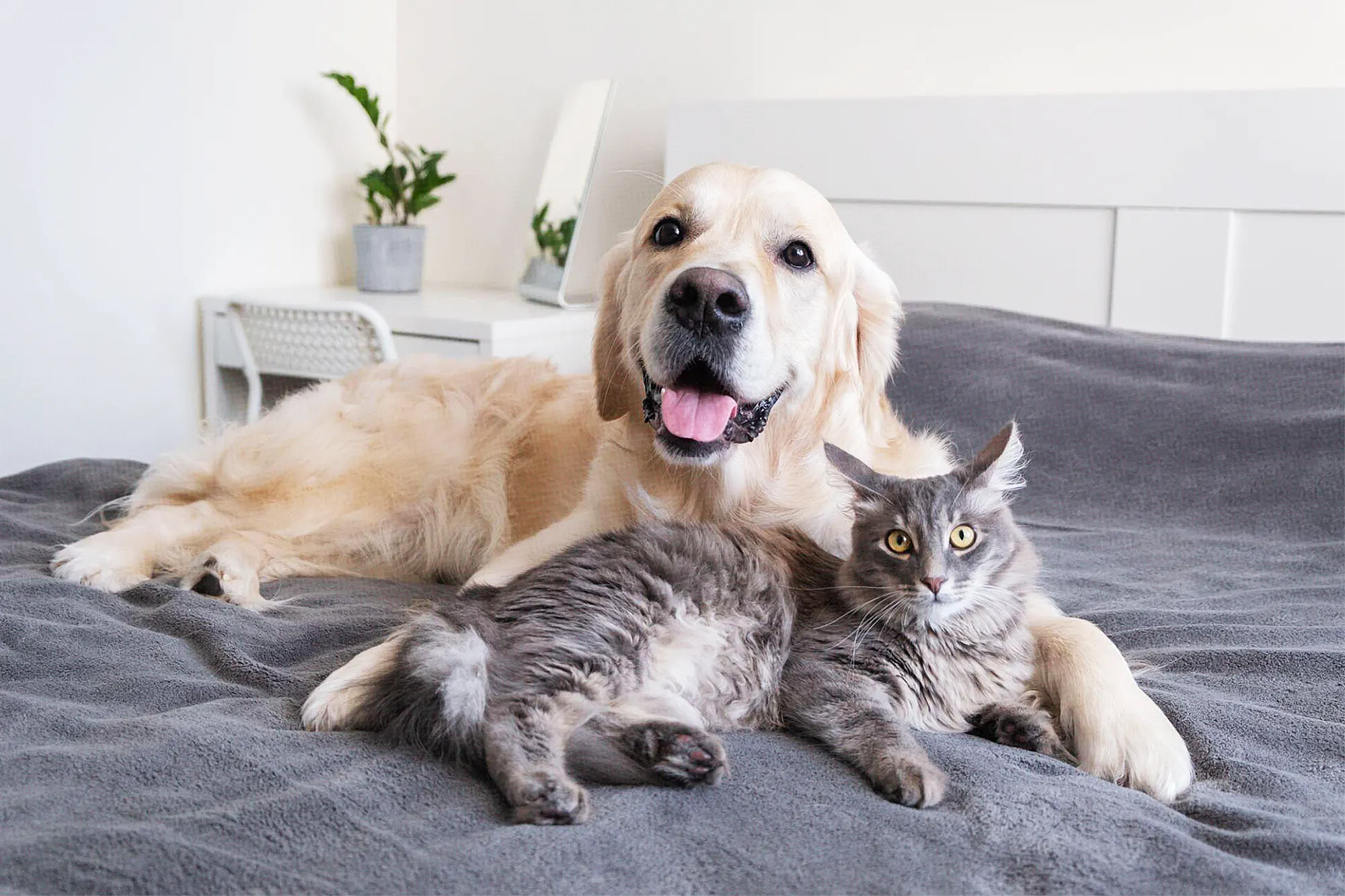When it comes to animal reproduction, many people wonder if it’s possible for two different species to mate and produce offspring. Specifically, some people may wonder if a dog can get a cat pregnant. In this blog post, we’ll take a closer look at this question and explore the factors that may impact the ability of two different species to mate and produce offspring.
The Difference Between Canine and Feline Reproduction
Despite being mammals, dogs and cats have quite different breeding cycles. Dogs have a relatively consistent breeding schedule. The average female dog goes into heat approximately twice a year, during which time they are receptive to mating, and fertilization can occur.
On the other hand, cats are seasonal breeders. Female cats, or queens, go into heat during specific periods of increased daylight hours, typically between spring and fall. Unlike dogs, a female cat can go in and out of heat several times during its breeding season if it doesn’t mate.
Aside from these distinct cycles, the sperm of dogs and cats are fundamentally different. They each carry a distinctive genetic blueprint that, in a normal situation, only matches up with the eggs produced by their respective species.
Can A Dog Get A Cat Pregnant?
The short answer is no, a dog cannot get a cat pregnant. Dogs and cats are two different species, and they have different numbers of chromosomes. Chromosomes are structures in the cells of living organisms that contain genetic information. For example, dogs have 78 chromosomes, while cats have 38 chromosomes. Because of this difference in chromosome number, dogs and cats are not able to mate and produce viable offspring.
Factors That Affect Reproductive Compatibility
While it’s not possible for a dog to get a cat pregnant, there are some general factors that can affect the reproductive compatibility of different species. These factors include:
- Genetic Compatibility: For two different species to successfully mate and produce offspring, they must be genetically compatible. This means that their genetic material must be similar enough to allow for fertilization and development of viable offspring. If the genetic material of two different species is too different, fertilization cannot occur.
- Physical Compatibility: Even if two different species are genetically compatible, they may not be physically compatible. For example, the reproductive organs of two different species may not fit together properly, preventing successful mating.
- Hormonal Compatibility: Hormones play a critical role in the reproductive process, and the hormonal cycles of different species can impact their ability to mate and produce offspring. For example, the hormonal cycles of dogs and cats are different, which can make mating difficult or impossible.
- Behavioral Compatibility: In addition to genetic, physical, and hormonal factors, the behavior of different species can also impact their ability to mate and produce offspring. For example, a dog may not be interested in mating with a cat, or a cat may be aggressive towards a dog, preventing successful mating.
Conclusion
While the idea of adorable dog-cat hybrids might be fascinating to some, the biological reality is fundamentally different. The reproductive systems, breeding behaviors, and genetic make-up of dogs and cats are structured in ways that make cross-breeding between these two species an impossibility.
